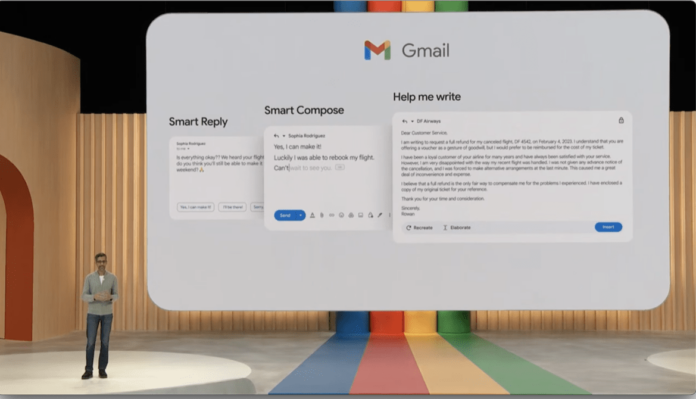Google I/O and the Coming AI Battles
Some things in tech are shocking, but not surprising — think of a CEO of a struggling company losing their job. Sure, the news is unexpected, but it makes sense if you think about it. Other news, though, is shocking and surprising, and Google’s February keynote in Paris — which appeared to be a panicked response to Microsoft’s GPT-powered Bing announcement — was both.
The shocking part was just how poor the presentation was: there was very little content that was new, the slides and speakers were out of sync, and the nadir came when one of the presenters started a demo and only then realized they didn’t have a phone to demo with.
The surprise is that Google would be caught so far out of pocket about AI, and not just because AI would seem to be in Google’s sweet spot: in fact Google has been talking about AI at Google I/O in particular for years now, and I’ve consistently found the company’s framing of its work very impressive. Go back to 2016, when I excerpted CEO Sundar Pichai’s long digression into how machine learning is used in its products and wrote:
Note the specificity — it may seem too much for a keynote, but it is absolutely not BS. And no surprise: everything Pichai is talking about is exactly what Google was created to do. It’s no different than Ballmer exclaiming how much he loves Windows: that was the product representation of Microsoft’s mission, a perspective that perhaps grants the deposed CEO just a hint of grace for his inability to move on.
The next 30 minutes were awesome: Google Now, particularly Now on Tap, was exceptionally impressive, and Google Photos looks amazing. And, I might add, it has a killer tagline: Gmail for Photos. It’s so easy to be clear when you’re doing exactly what you were meant to do, and what you are the best in the world at.
Two years later I called Google I/O boring, and I meant it as a compliment:
This is why I think that Pichai’s “boring” opening was a great thing. No, there wasn’t the belligerence of early Google I/Os, insisting that Android could take on the iPhone. And no, there wasn’t the grand vision of Nadella last week, or the excitement of an Apple product unveiling. What there was was a sense of certainty and almost comfort: Google is about organizing the world’s information, and given that Pichai believes the future is about artificial intelligence, specifically the machine learning variant that runs on data, that means that Google will succeed in this new world simply by being itself. That is the best place to be, for a person and for a company.
That was the year that Google invented the transformer, the key invention undergirding the large language models that power ChatGPT, the product that seemed to fluster Google so much over the past six months. What was impressive about this year’s Google I/O is that it managed to combine what was compelling about Google’s last several I/O’s — its clear AI capabilities and the products in which to manifest them — with the urgency and aggressiveness that are exactly what you would hope to see from a company feeling threatened for the first time in years.
Google’s AI Evolution
I noted above that Google introduced Google Photos as being Gmail for photos; two of my favorites slides from Pichai’s opening remarks showed how both products are evidence of Google’s evolving AI capabilities. Gmail evolved from “Smart Reply” to “Smart Compose” to “Help Me Write”:

Google Photos evolved from “Find Photos” to “Magic Eraser” to “Magic Editor”:

This was a very clever way to reinforce the idea that Google has been at this AI stuff for a while, and it’s true! It was also a reminder that one of Google’s big advantages mirrors Microsoft’s: the company has a bunch of user-facing products in which to surface AI capabilities in genuinely useful ways. Pichai noted that Google had 15 products with over 500 million users…



